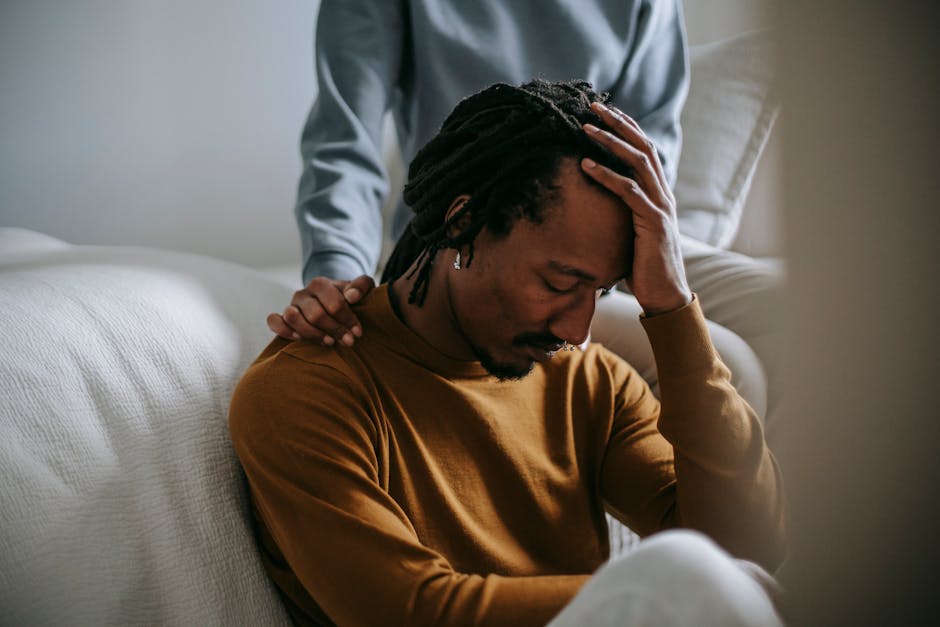
Mindfulness
Coping Methods for Grief, Depression, and Anxiety for Both Mind and Body
Imagine Solutions with Urban Youth Initiative inc.
17 February, 2023
Imagine Living Solutions serves those with developmental disability, addition, and basic lifestyle behavioral support needs. Book a consultation today! 347-712-5463 or 646-821-7895
Coping with depression, stress, and/or anxiety can be challenging even for women who have support surrounding them. For others, it can be nearly impossible to focus on maintaining their daily needs when those emotions are looming large. Grief and trauma often coexist with these feelings, making it even more difficult to seek the right treatment or find healthy coping methods.
The good news is, you don’t have to make major life changes in order to get help and find relief. In fact, sometimes it’s the little things that make a big difference. If you’re ready to talk to a professional about overwhelming feelings of anxiety or grief, start by booking a free consultation at Imagine Living Solutions. In the meantime, here are a few ways you can make positive changes to your surroundings and lifestyle for your mental health:
Clean up and de-stress your home
Because our homes are where we go to feel safe and comfortable, the negative aspects of our surroundings are often overlooked. If your home is cluttered, dark, dusty, and uninspired, it’s time to open the windows to let in fresh air, clean up and declutter, and add a few plants. These simple steps can have a big impact on the way you feel when you’re at home, both mentally and physically, and can help you reduce stress and anxiety by allowing you to relax, get better sleep, and banish fatigue.
Find support
Once your physical environment is taken care of, think about your emotional surroundings. Do you feel supported by friends and loved ones? Do you have someone you trust who will listen when you’re feeling overwhelmed or stressed? Even after seeking help from a professional therapist, it’s important to have a support system either at home, at church, in a group setting, or online. Talking to like-minded people who have had similar experiences can be extremely beneficial in allowing you to process your emotions and will give space to your grief.
Take care of your body
Whether you’re dealing with anxiety, depression, grief, or a mixture of emotions, it’s important to take care of your body since it’s connected to your mental health. When we don’t sleep or eat well, get enough physical activity, get outdoors, or get social, our minds are tremendously impacted along with our bodies. RTOR.org notes to make it a point to get outside several times a week if possible, since this can help you stay active and reset your circadian rhythm for better sleep.
Grief and other difficult emotions can make eating right a challenge, so take steps to make healthy meals easier for yourself by ordering from a fresh meal delivery service or practicing meal prep each week. Keep in mind that you don’t have to eat three full meals a day if that feels overwhelming; you might eat several smaller portions or keep healthy snacks on hand to keep your energy–and mood–up.
Understand that it will take time
The reason that making these small changes to your environment and lifestyle is so beneficial for coping with grief, anxiety, and depression is because you’re taking things one step at a time, making manageable goals, and moving forward at your own pace. It’s important to understand that healing and learning healthy coping methods will take time, especially where grief is concerned, as those feelings often come in waves and reappear just when you think you’re feeling better. Keeping your expectations realistic will help you get through the next several months as you try new ways to cope and heal.
Dealing with difficult emotions can be exhausting, so it’s crucial to listen to your body during this process and to know what your limits are. As What’s Your Grief? points out, maintaining open communication with your support system is important during this time so that you can enforce boundaries as well as seek the help you need.
